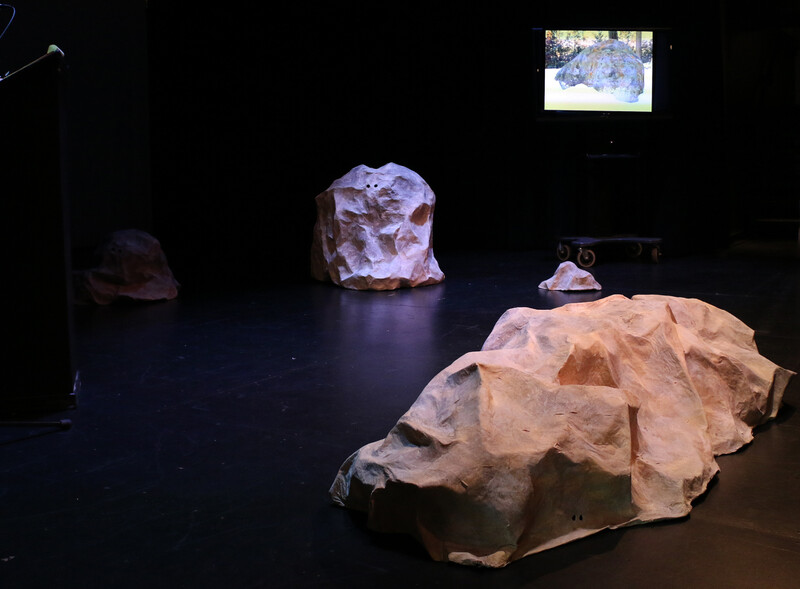
How can the everyday be affectively situated within the geologic timescale?
Can living on a 4.6 billion-year-long timeline temper anthropocentrism?
And, what if stone could talk?
In Stone: An Ecology of the Inhuman, Jeffrey Cohen writes: “To palm a rock is to press flesh against the first moments of time”. Here he captures stone’s readiness to impress the geologic timescale. He later describes its ability to inspire unknowing stating: “Despite its promise of unmediated truth, stone does not offer easy or secure knowledge and exceeds any attempt to still it into familiarity”. Cohen expands on stone’s vital force: “Stone is not an obstacle to overcome, but a thing that makes demands, scripts stories, and does not fully yield to human enframing.” Stone: An Ecology of the Inhuman models new ways of relating to stone and to the greater material world as does political philosopher Jane Bennett’s theory of “vital materiality” and Don McKay’s “geopoetry”. These are approaches to understanding guided by empathy not anthropocentrism, uncertainty not mastery. Such questions and philosophical and poetic texts form the foundation for Watching Rocks: Banff, the first episode in a series of live-streamed videos of boulders. Screened for the duration of Running with Concepts: The Geologic Edition, the video will at once capture the immediacy that drives human lives now and the near stillness of time within the geologic scale. Further, in delivering a “real live” rock to the room, the video will make possible a shift in the status of geology from subject to participant.
Watching Rocks: Banff
- Presenter
- Meghan Price

The Blackwood
University of Toronto Mississauga
3359 Mississauga Road
Mississauga, ON L5L 1C6
[email protected]
(905) 828-3789
The galleries are currently closed.
Facebook | Twitter | Instagram
Sign up to receive our newsletter.
The Blackwood is situated on the Territory of the Mississaugas of the Credit, Seneca, and Huron-Wendat.